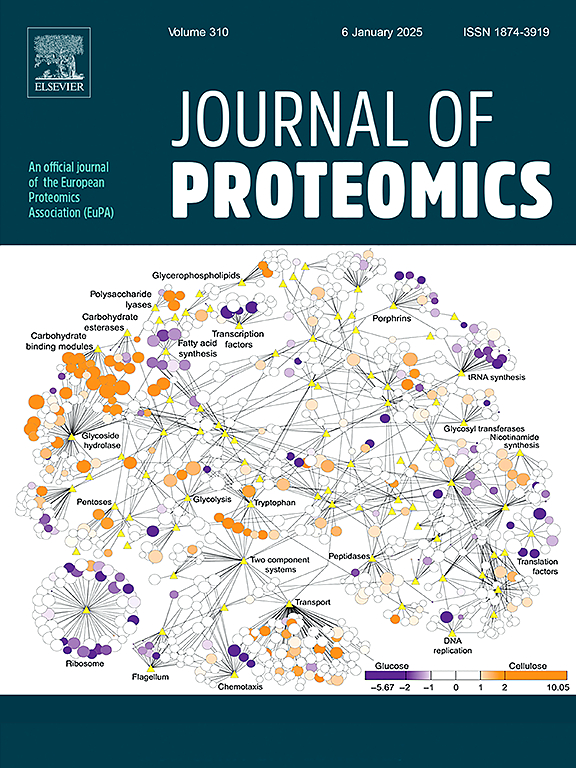Comprehensive biobanking strategy with clinical impact at the European Cancer Moonshot Lund Center
IF 2.8
2区 生物学
Q2 BIOCHEMICAL RESEARCH METHODS
引用次数: 0
Abstract
This white paper presents a comprehensive biobanking framework developed at the European Cancer Moonshot Lund Center that merges rigorous sample handling, advanced automation, and multi-omic analyses to accelerate precision oncology.
Tumor and blood-based workflows, supported by automated fractionation systems and standardized protocols, ensure the collection of high-quality biospecimens suitable for proteomic, genomic, and metabolic studies. A robust informatics infrastructure, integrating LIMS, barcoding, and REDCap, supports end-to-end traceability and realtime data synchronization, thereby enriching each sample with critical clinical metadata. Proteogenomic integration lies at the core of this initiative, uncovering tumor- and blood-based molecular profiles that inform cancer heterogeneity, metastasis, and therapeutic resistance. Machine learning and AI-driven models further enhance these datasets by stratifying patient populations, predicting therapeutic responses, and expediting the discovery of actionable targets and companion biomarkers. This synergy between technology, automation, and high-dimensional data analytics enables individualized treatment strategies in melanoma, lung, and other cancer types. Aligned with international programs such as the Cancer Moonshot and the ICPC, the Lund Center's approach fosters open collaboration and data sharing on a global scale. This scalable, patient-centric biobanking paradigm provides an adaptable model for institutions aiming to unify clinical, molecular, and computational resources for transformative cancer research.

欧洲癌症登月计划隆德中心的综合生物银行策略与临床影响
本白皮书介绍了欧洲癌症登月计划隆德中心开发的综合生物银行框架,该框架融合了严格的样本处理、先进的自动化和多组学分析,以加速精确的肿瘤学研究。肿瘤和血液为基础的工作流程,由自动化分离系统和标准化协议支持,确保高质量的生物标本的收集适合蛋白质组学,基因组学和代谢研究。强大的信息学基础设施,集成LIMS,条形码和REDCap,支持端到端可追溯性和实时数据同步,从而丰富每个样本的关键临床元数据。蛋白质基因组整合是这一倡议的核心,揭示肿瘤和血液为基础的分子谱,告知癌症异质性,转移和治疗耐药性。机器学习和人工智能驱动的模型通过对患者群体进行分层、预测治疗反应、加速发现可操作的靶点和伴随生物标志物,进一步增强了这些数据集。这种技术、自动化和高维数据分析之间的协同作用使黑色素瘤、肺癌和其他癌症类型的个性化治疗策略成为可能。与癌症登月计划和ICPC等国际项目保持一致,隆德中心的方法促进了全球范围内的开放合作和数据共享。这种可扩展的、以患者为中心的生物银行模式为旨在统一临床、分子和计算资源以进行变革性癌症研究的机构提供了一种适应性模型。
本文章由计算机程序翻译,如有差异,请以英文原文为准。
求助全文
约1分钟内获得全文
求助全文
来源期刊

Journal of proteomics
生物-生化研究方法
CiteScore
7.10
自引率
3.00%
发文量
227
审稿时长
73 days
期刊介绍:
Journal of Proteomics is aimed at protein scientists and analytical chemists in the field of proteomics, biomarker discovery, protein analytics, plant proteomics, microbial and animal proteomics, human studies, tissue imaging by mass spectrometry, non-conventional and non-model organism proteomics, and protein bioinformatics. The journal welcomes papers in new and upcoming areas such as metabolomics, genomics, systems biology, toxicogenomics, pharmacoproteomics.
Journal of Proteomics unifies both fundamental scientists and clinicians, and includes translational research. Suggestions for reviews, webinars and thematic issues are welcome.
 求助内容:
求助内容: 应助结果提醒方式:
应助结果提醒方式:


